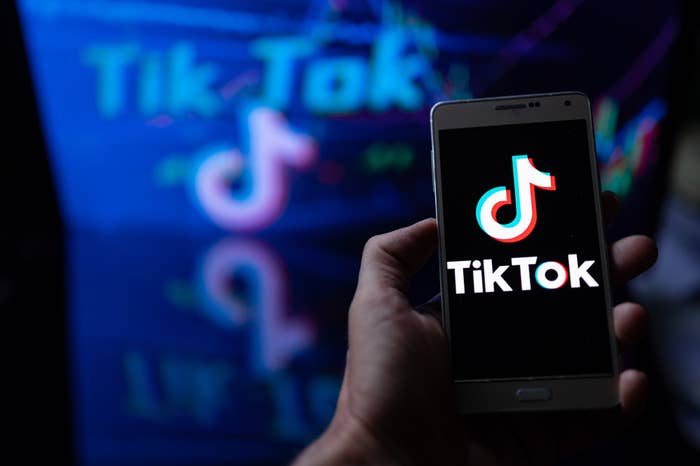
Three members of Congress introduced a bill on Tuesday that would ban TikTok from operating in the US after the social media company faced backlash over revelations that American users' data had been accessed in China.
"This isn’t about creative videos — this is about an app that is collecting data on tens of millions of American children and adults every day," said Republican Sen. Marco Rubio, who introduced the bill with a bipartisan pair of colleagues in the House of Representatives.
Dubbed the Averting the National Threat of Internet Surveillance, Oppressive Censorship and Influence, and Algorithmic Learning by the Chinese Communist Party Act — or the ANTI-SOCIAL CPP Act — the proposed legislation would "block and prohibit all transactions" of TikTok and its China-based parent company ByteDance. It would also ban other social media companies with more than 1 million users that are located in or are under the "substantial influence" of China, Russia, Iran, North Korea, Cuba, or Venezuela from operating in the US.

Rep. Raja Krishnamoorthi, an Illinois Democrat who cosponsored a companion bill in the House, called the legislation "a strong step" to protect Americans from "the nefarious digital surveillance and influence operations of totalitarian regimes."
“At a time when the Chinese Communist Party and our other adversaries abroad are seeking any advantage they can find against the United States through espionage and mass surveillance, it is imperative that we do not allow hostile powers to potentially control social media networks that could be easily weaponized against us," Krishnamoorthi said in a statement.
The legislation comes months after the social media company confirmed an explosive report by BuzzFeed News that engineers in Beijing had accessed data of American TikTok users as recently as this year. Over the years, US policymakers and lawmakers have scrutinized TikTok’s data-sharing and privacy practices because of concerns that its parent company is controlled by the Chinese government.
In 2019, the Committee on Foreign Investment in the United States began investigating the national security implications of the platform and has been negotiating with the company to ensure that certain "protected" data can no longer flow out of the country and into China. But BuzzFeed News’ investigation published in June showed that public data, which includes people’s profiles, comments, and what they post, will not be included, potentially providing ByteDance employees with massive insights into American users' lives and their media consumption habits.
In a statement provided to BuzzFeed News, TikTok spokesperson Brooke Oberwetter said it was "troubling" that members of Congress would "push for a politically-motivated ban" while the government's review of the company is ongoing, saying that the legislation would do "nothing" to advance national security.
"TikTok is loved by millions of Americans who use the platform to learn, grow their businesses, and connect with creative content that brings them joy," Oberwetter said. "We will continue to brief members of Congress on the plans that have been developed under the oversight of our country's top national security agencies—plans that we are well underway in implementing—to further secure our platform in the United States."
But Rubio argued that the negotiations between the company and the US government were a waste of time as he described TikTok as a "puppet" of the Chinese Communist Party.
"We know it’s used to manipulate feeds and influence elections," the Florida senator said in a statement. "We know it answers to the People’s Republic of China. ... It is time to ban Beijing-controlled TikTok for good.”
